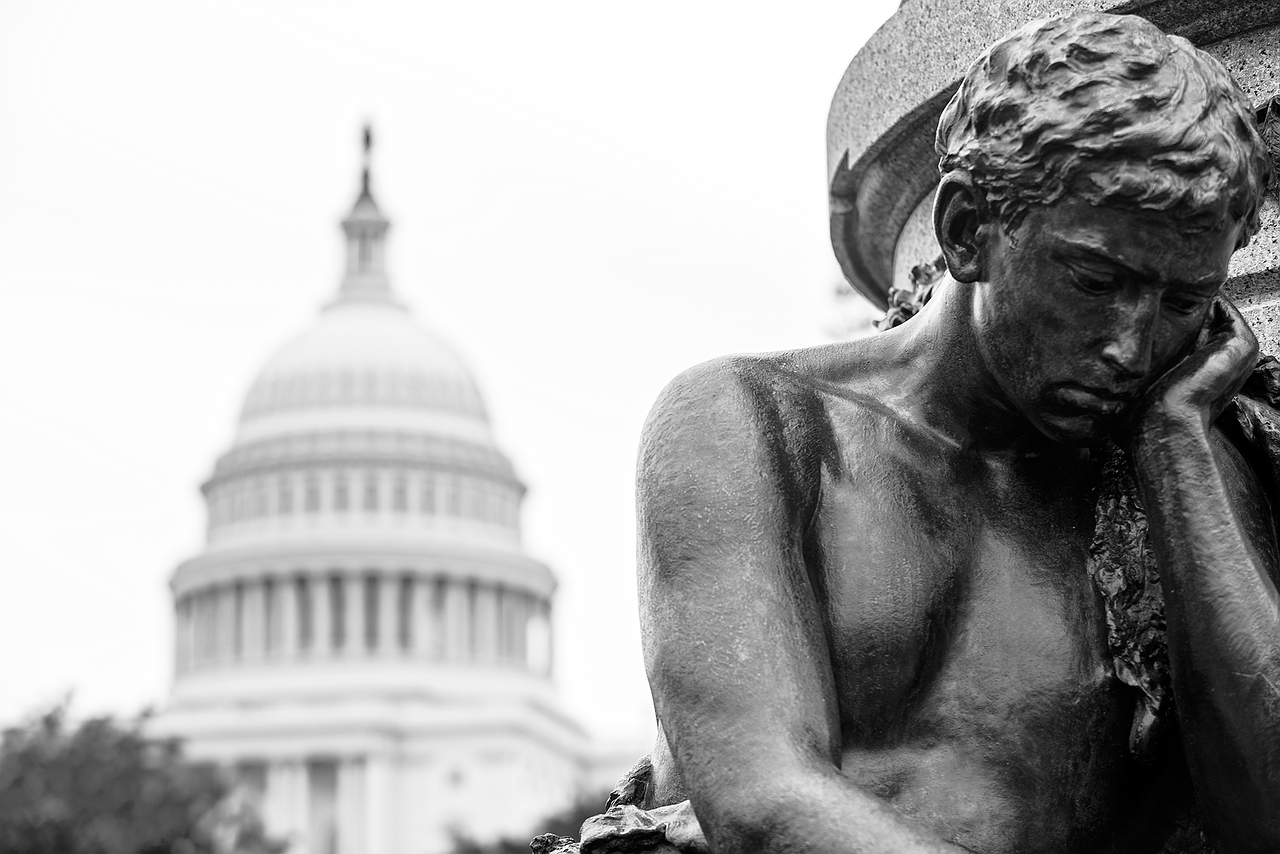 Mixed reactions to Kate Mroz’s post “The Problem with #NeverTrump” reveal the deep restlessness that exists at the intersection of faith and politics. The old taboo of religion and politics is silly because those are two things that touch us deeply. To say that we cannot find spirituality (or God) in the messiness of politics is a mistaken belief. As Catholics, we’re called to live out our faith in all aspects of our lives, including the secular and public realm.
Mixed reactions to Kate Mroz’s post “The Problem with #NeverTrump” reveal the deep restlessness that exists at the intersection of faith and politics. The old taboo of religion and politics is silly because those are two things that touch us deeply. To say that we cannot find spirituality (or God) in the messiness of politics is a mistaken belief. As Catholics, we’re called to live out our faith in all aspects of our lives, including the secular and public realm.
While the US election may seem the most divisive or vile it’s ever been, the truth is, Christians of good will have always struggled with their political decisions. And when specific candidates come up as part of the discussion it stirs up that deep feeling of unease and anxiety. Whom do I vote for? Which issues matter more? As Catholics we shouldn’t feel satisfied with any candidate. There will never be a “perfect” leader who aligns perfectly with Catholic teaching and Gospel values. And when we become single issue voters we make the process too black and white. If we vote only based on a candidates stance on abortion or LGBT rights or environmental policy we over-simplify. After all, Catholics are holistic on life and dignity issues. What does one do when one candidate opposes abortion but not the death penalty? Or when another candidate supports better environmental policy but supports mass deportation? There is never a perfect candidate.
Messy Discernment
Ignatian discernment acknowledges the messiness. Few decisions are so simple and easy. This is why Ignatius encourages lots of prayer and the use of multiple discernment methods. And sometimes discernment means making a list of pros and cons, with full knowledge that every choice has cons, including those running for public office.
The end of any discernment requires a decision. In the case of an election it could mean a vote for a candidate or an abstention from voting. What Ignatian spirituality gives us are tools that aid in making the best decision we can, knowing that we will unlikely have 100% clarity. Some unsettledness is okay.
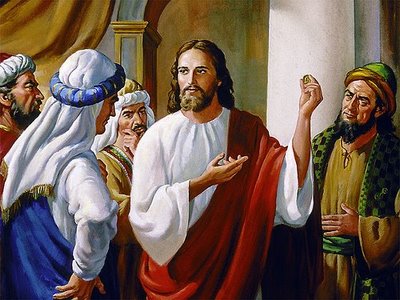 Church and State
Church and State
We know politics must be informed by our spiritual life. The Church prays for civic leaders and encourages civic engagement. Ignatius didn’t avoid politics – he was a military governor. Jesus and the other Jews in Palestine had to deal with the Roman government. But we must keep in mind that for the Jews, their hope was a Jewish state. Jesus would not have had the mindset we have with a clear separation between church and state. So it would be unfair to ask what Jesus would do if he were president. That isn’t his mission. He didn’t use power to make social change. He took the place of humility. He (and his apostles) stepped into the messiness of imperfect societies and fallible leadership structures. Jesus changed hearts from within, slowly. He did get questions about whether to pay taxes to the governing powers. “Render unto Caesar what is Caesar’s,” he said. He saw the bigger picture. Our faith informs the political realm but our faith also transcends politics and parties.
Those who are in power have great responsibility, but, as Kate mentioned in her post, we also carry great responsibility. We cannot ever assume a single leader will make positive change without the help of the rest of us. The Christian life is about doing our part to bring the Gospel message into the world and to support the love and dignity of all people. No political candidate will do that perfectly, and neither will we – that’s why the larger human community must work together to achieve the Gospel ideal, discerning as best we can to make decisions that work toward that ideal.
So for those feeling caught up between their faith and political decisions, take a moment and acknowledge that that restless feeling is the life of the Christian. And it’s okay. Human structures are never perfect, which is why we require the Holy Spirit to intercede and continue Christ’s slow work of transforming hearts and transforming the world.
Listen to an audio version of this post…


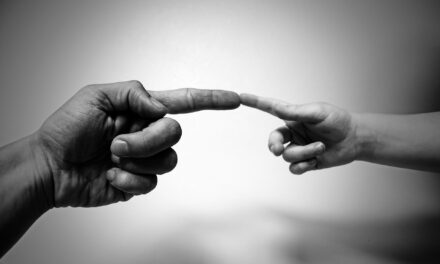
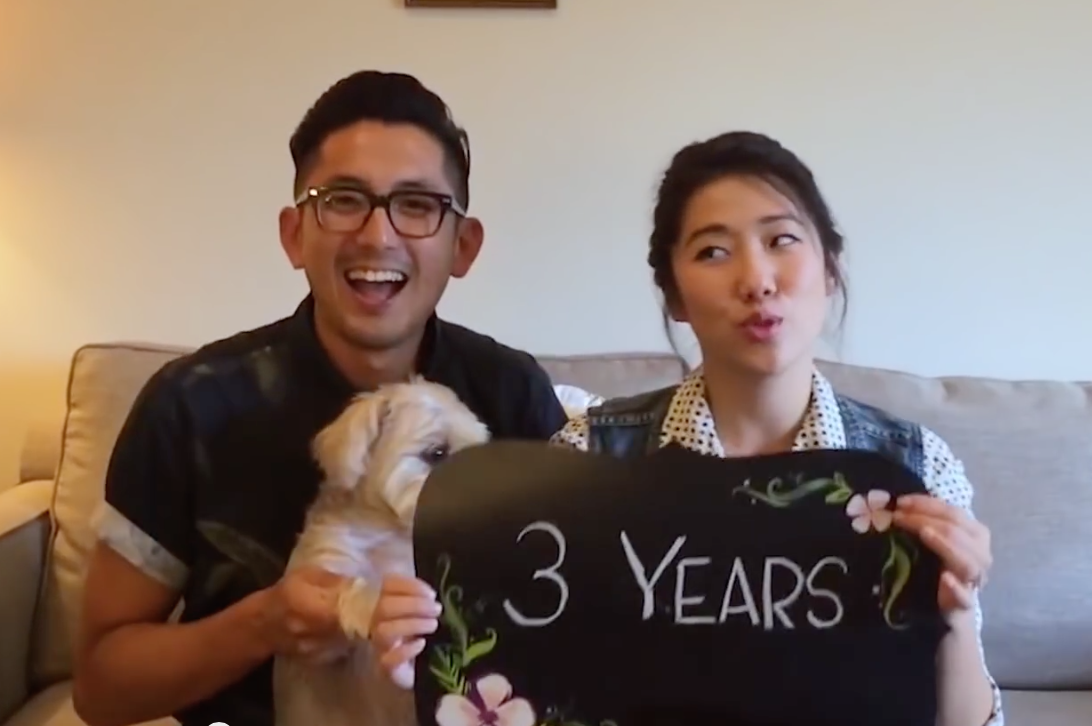
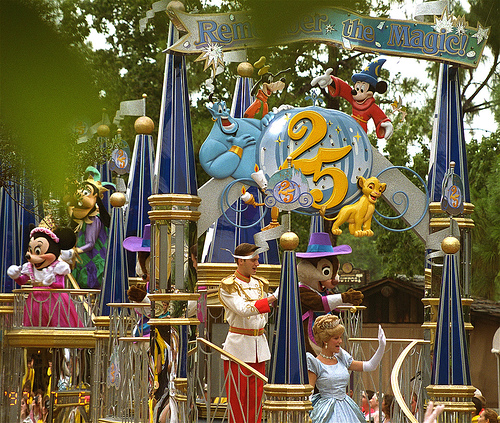




Well done Andy for bringing some common sense to the argument. One of the questions with which I wrestled in the Exercises was that of discernment. But you are right discernment is essential since nothing is ever black or white if only because we are fallible human beings and not God.
brilliant summary both of the dilemma and the solution. We live in an imperfect, broken world and that is reflected both in the political leaders who arise and in our own compromises. Such compromises challenge us at every turn – do I use the car (and damage the environment) or cycle (and have less time to spend helping others)? Do I buy food from the supermarket in plastic packaging (damaging the environment) or pay more for food from independent suppliers and farm shops, leaving me with less money to give to charities? Oh, I realise i’m simplifying – but we all compromise our principles at every turn, whether we realise it or not.
This is a messy, imperfect, broken world and we need a Saviour – and no political leader will ever be that for us.
One of the biggest mistakes we continue to make as a nation is to put our trust in a political leader (or leaders) instead of putting our trust in God. It’s nothing new. At the height of His ministry, Jesus had to go into a short period of seclusion because He knew the people planned to take him by force and make Him their king (John 6). Long before Jesus walked the earth, when the nation of Israel was ruled by the judges, they cried out for a king like the other nations around them. And God was angry with them, because they put their trust in a king instead of trusting in their God. As God said to Samuel, “They have rejected me from being king over them.” We haven’t changed much at all.
The Bible does tells us, however, that we are to pray for our leaders. We put our trust and faith in God, but we still must pray for our leaders. That means we pray for all of them, even the ones we don’t like, and I must confess that I don’t do that near as often I should. Right now, this nation is in turmoil. But I’m not going to play the blame game. I’m not going to blame Obama, the Democrats, George Bush, the Republicans, Hillary, etc. Instead, I put the blame solely at my own feet. As a Christian, I have not done nearly enough to stand up for Christ and for Christian values. In recent years I have made great strides to rectify that. I’m far more bold in my faith than I used to be and God is making me bolder every time I stand up for the faith. I still have a ways to go though. But we need to be continually praying for the next president, whoever it is (and God already knows who it will be). But more important than that, we must pray for repentance as a nation. Pray that this nation will turn back to God and away from its sins. And that begins with each of us. As the late W.A. Criswell once said, “God will not heal a nation until that nation repents. And a nation cannot repent…..until I repent.”
This is a nation in turmoil, like I said. And we are a nation that is under judgement right now. If we don’t repent as a nation and turn back to God, I think the next president, whoever it is, will preside over the next civil war in America. When you look at what’s going on all the political rallies, I believe we’re seeing a preview of what’s to come. God often used civil wars and civil unrest to bring judgement on nations and God has not changed. This is all just my opinion of course, but God certainly has the power to do this. He has the power to bring our nation to complete ruin.
It is a time for prayer. It is time to reject the world’s lies and turn back to the truth of God’s word. It’s time to turn from the way that seems best to us, and return to His way. And did I mention, it is a time for prayer?
Thanks Andy and other responders. Thanks for discussing the Catholic faith and politics without pushing any particular agenda. We are in an odd place as Catholics. I for one find clear discernment impossible right now. So I will pray and listen. Your post was much more of what I expect here and I know I will reread it going forward.
Andy. May I be allowed one last comment please? Whilst I appreciate that you are approaching this discussion from the point of view of the Catholic faith, which I respect, please do remember that at this election you are choosing the most powerful person in the world and that that choice will have an effect on every country in the world. Please, I pray take account of the big picture.
Andy, I’ve been following you from the beginning and I have always found great solace in your words. Thank you again. I try and follow your advice to pray, discern and then, not get involved so much in how others live or how God is judging. A Jesuit friend of mine suggested once to use the Beautitudes as an Examen prayer when I was in the mood to judge others. He said it might open my eyes to the fact that we have other responsibilities that are more important in God’s eyes. Bless you for your wisdom and willingness to share it with us so that we may grow spiritually.
Beautifully said. As a Christian who finds himself outside of your particular stream, I find your words have universal relevance. Thank you.
Blessings.